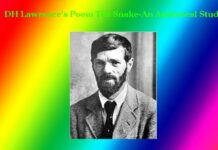Al-Hutay’ah | His Life and Poetic Career
Al-Hutay’ah | His Life and Poetic Career
Al-Hutay’ah | His Life and Poetic Career
Brief Life Sketch: Al-Hutay’ah (or Al-Hutaiah) was one of the most popular Arabic Mukhadrim poets. His real name was Abu Mulayka al-Zarwal bin Aus. He was born in the womb of a slave woman in the tribe of Banu Abs. His exact date of birth is unknown. However, it is believed that he was born in the last decade of the sixth century or the first decade of the seventh century. Born of a slave girl, he was ridiculed, hated, and neglected from an early age. His character had all the bad qualities of an ordinary Arab of that time. From an early age, he developed a disgust for those who condemned him and began composing poetry with the determination to take revenge on them. He was a pagan in the first half of his life. Later, after the advent of Islam, he converted to Islam along with several other members of his tribe. But he did not give up his bad habits. It is known that he did not meet the Prophet Muhammad (peace be upon him) in his life. After the death of the Prophet Muhammad (peace be upon him) in 632 AD, he renounced Islam and began to oppose Islam. However, the first Caliph of Islam, Hazrat Abu Bakr (RA), launched a campaign against the apostates. Al-Hutay’ah then converted to Islam again. During the reign of the second Caliph, Hazrat Umar (RA), he incurred the wrath of the government by composing a poem condemning a tax collector named Jibrikan Ibn Badr. He later apologized and was released. He earned his living by composing and reciting poetry. In other words, he was a professional poet. He died in 674 AD.
Poetic Career: Al-Hutay’ah was a born poet and is famous in the history of Arabic poetry as the author of satiric poetry. He wrote about 900 poems. He took revenge by composing satire on those who hated him. His satirical poetry did not exclude anyone: his acquaintances, strangers, relatives, or non-relatives. He also wrote poems condemning his own appearance. In a poem he wrote–
“I see my face
Allah created it ugly.
The woman who gave birth to me
Was also ugly as my physique is.”
He did not write any poems condemning the poor.
Some of his poems were eulogistic. In those poems, he praised and glorified those who helped him or showed sympathy for him. He wrote poems praising leading figures such as Abu Musa al-Ansari, al-Waleed bin Uqba, Syed bin al-Ash, and Uyna bin Hisn and won their sympathy and reward.
He also wrote some love poems. His love poems contain fascinating descriptions of the various limbs of the female body such as the neck, thighs, nose, ears, hair, face, smile, etc. His imageries were fanciful and fascinating.
Though he was a poet of the early Islamic period, his poetry was very slightly influenced by Islamic philosophy.
His poems were rhythmic. The balanced use of words is a notable feature of his poetry, although he also used unfamiliar words in many of his poems.
He contributed significantly to the flourishing of Arabic poetry. He is said to be the last of the Mukhadrim poets. 0 0 0.
ead More: A Brief History of Arabic Literature: Pre-Islamic Period (500 AD-622 AD)
Note: The article ‘Al-Hutay’ah | Al-Hutay’ah His Life and Poetic Career’ originally belongs to the book entitled ‘A Brief History of the Arabic Literature: Early Islamic Period (622 AD -661 AD)’ by Menonim Menonimus.
The Qur’an: Source of Arabic Language and Literature
Related Searches:
Books of Literary Criticism by M. Menonimus:
- World Short Story Criticism
- World Poetry Criticism
- World Drama Criticism
- World Novel Criticism
- World Essay Criticism
- Indian English Poetry Criticism
- Indian English Poets and Poetry Chief Features
- Emily Dickinson’s Poetry-A Thematic Study
- Walt Whitman’s Poetry-A Thematic Study
- Critical Essays on English Poetry
- Tawfiq al-Hakim’s Novel: Return of the Spirit-An Analytical Study
- Tawfiq al-Hakim’s Novel: ‘Yawmiyyat Naib Fil Arayaf’-An Analytical Study
- Analytical Studies of Some Arabic Short Stories
- A Brief History of Arabic Literature: Pre-Islamic Period (500 AD-622 AD)
- A Brief History of Arabic Literature: Early Islamic Period (622 AD-661 AD) …
- 622 AD-661 AD) …











